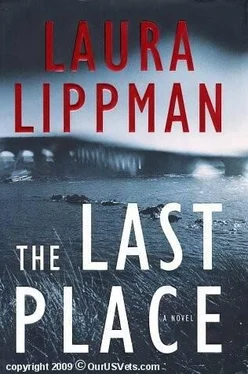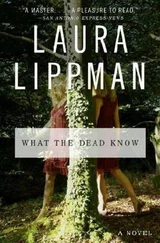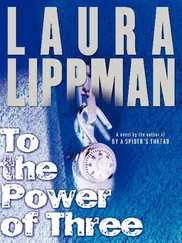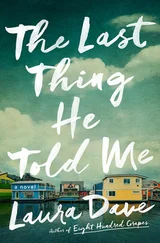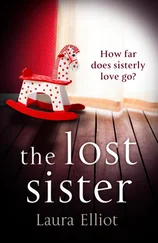“Sometimes. But that’s usually someone else’s fault. Not mine. Other folks get greedy, or careless. They think they don’t need me, they try to do it themselves, they don’t take precautions, they don’t realize when a place is tapped out. Those are the ones who get caught, Ma.”
Her brows knit. She struggles to a sitting position. She won’t travel much farther today. From sitting here to sitting in her little living room. She is willing her body into atrophy. What does it matter if the stove is gas or electric? She lives off prepared food and microwaved dinners. Horrible things, microwaves. He’d never choose to live with one.
He admires his mother in a way that her doctors can’t, or won’t. Animals know when death is coming for them. Why shouldn’t his mother? But he can never decide if this new fear is for the past, and what lies there, or for the lack of a future. Does she look forward to death because she thinks it will put an end to these fears? She was so strong when he needed her, so capable. He owes her everything. That’s what the doctor could never understand. She’s a good person, sweet and kind. She gave him life twice. How boring it was, how banal, to be quizzed about her. She was not the problem. She was the solution.
He fixes her breakfast, cereal made hot with boiling water, a sliced banana on top. She has all her teeth but she prefers soft, mushy food. When will he have to feed her a spoonful at a time? Five years, ten years, twenty years, thirty? And then what happens? How can he spare her the final indignities of life? He makes her a cup of Sanka. Hideous stuff. He wonders if she’s ever read the label. Then he gives her some Hydrox cookies, which she will dip into the Sanka until they too are soft.
Her doctors have told her to watch her fat intake. She has a fierce sweet tooth, and if she can’t bake five-layer cakes anymore, she wants to have her Hydrox. Hydrox, not Oreos, never Oreos. And Hydrox are getting hard to find. He has to go on the Internet, buy them from some Texas company that tracks down disappearing foodstuffs. He rather likes the woman he deals with, so peppy and full of enthusiasm for her job. There are so many needs to be filled in this world, so many people, like her and him, filling them. The Endangered Snack Act, he thinks, that’s what the country really needs. Something to protect Hydrox and Hostess Snowballs and Charleston Chews.
She holds the cookie down in the Sanka, dunking it until it almost falls apart, then pops it in her mouth. He turns on the television, the program with the silly morning men, the ones who make people sing “Manic Monday” at the start of every week. A small trail of brown saliva dribbles from the corner of her mouth, and he dabs it for her. More and more, she has trouble swallowing, although the doctors say there’s no reason she should. She has perpetual heartburn.
“Everything comes up,” she says absently, her eyes on the screen. He’s not sure if she’s talking about her food or the past. “Everything comes up.”
“I know, Ma. I know.”
Tess sailed out into Tuesday morning, optimistic about life in general and hopeful about her work in particular. It was the kind of fresh spring day that made everyone but T. S. Eliot feel hopeful. She just felt in her bones that today’s homicide, the one with the skimpiest file, was likely to yield the greatest dividends.
That feeling vanished when a dead woman opened the door to her home and invited Tess in for tea.
The brick Cape Cod in far northwest Baltimore County was absurdly small, but so was its tenant. The woman behind the storm door was not even five feet tall. The doll in this dollhouse had long dark hair, wide blue eyes, and pink-white cheeks. She looked delicate and fragile, the type of woman who inspired solicitous feelings in men and women alike.
But she was undeniably, indisputably alive, so Tess first assumed she must be a relative or friend of the deceased.
“I’m looking for someone who might know something about Julie Carter,” Tess had begun.
“I can’t imagine anyone who could know more than I do,” she said, projecting her voice so it could be heard through the door’s acrylic covering. The voice was unexpected, dry as beef jerky. It sounded Western to Tess, not in its accent so much as in its smoky, sun-baked timbre, which was suggestive of mesas and cactus and turquoise jewelry. “But I don’t much care for someone asking questions about me.”
“About you?”
“Well, I’m Julie Carter. Seems to me you should know that, if you’re going around and looking into me, asking questions about me. What are you?”
Not who, but what, Tess noted. That choice told her quite a bit about Julie Carter’s life, the kind of person who was apt to show up on her doorstep.
“It was my information… my understanding-” There did not seem to be any polite or effective way to tell someone she was included on a list of homicide victims. “I’m a private investigator, looking into some old cases. I was told you were… dead. Clearly, there’s been a mistake.”
“Oh, I don’t know. Some days I feel like I’m dead.” She folded her arms and leaned against the doorjamb. The house sat off by itself, as if it might have been a farm before this part of the county was developed. “You come up from Baltimore?”
“Yeah.”
“It’s farther than you think, isn’t it? From Baltimore, I mean.”
“A bit, yes.” Tess was confused. She had gotten the bum’s rush in considerably less awkward situations. But Julie Carter appeared to be prolonging their encounter, enjoying it.
“Yeah, I thought it was a real find, this place. Cheap, and it doesn’t look that far from I-83. And it isn’t, as the crow flies, but I’m not a crow. It takes at least an hour if you want to get to Baltimore, have a little fun.” She smiled broadly. “Which I do. Look, you wanna come in, have a cup of coffee?”
Why not. “Why not?”
“Cool.” She clapped her hands, the way a little girl might show delight, and unlatched the door. “Except it has to be tea. I just remembered I don’t have any coffee. That’s another thing about living out here in the sticks. It’s not like you can run out and grab something at the corner store. There is no corner store. There is no corner. ”Course, I guess someone who works at a grocery store ought to always have groceries, right? But when my shift finally ends, all I want to do is get out. So I never have any food in the house. Is that ironic or what?“
Literal-minded Tess was tempted to say no, this was not irony, merely absentmindedness. But she sensed something needy beneath Julie Carter’s cheerful banter. She must be lonely, a young single woman plopped down in the middle of these middle-class families. “Tea is always nice.”
“So, someone thinks I’m dead,” Julie said, putting a kettle on to boil and bringing out a basket of teabags, no two alike. “I get ‘em at restaurants. You oughta see my mustard collection. And ketchup. I’ve got a lot of ketchup. How did I die?”
“You didn’t, obviously.”
“I know. It’s probably some other Julie Carter. I get that all the time.”
“Probably. But I did have this address. In fact, your name and address were all I had.”
“So, was I murdered?”
Tess was so taken with Julie’s foghorn voice that she wasn’t really listening to the words, just the tobacco-cured vowel sounds. Julie was a heavy smoker. Being inside the house was like crawling into a pack of Marlboros.
“Well?”
“Well, what?”
“Was I murdered?”
“Your name was on a list of open homicides. Murder is a legal term.” She sounded priggish, but her tone didn’t seem to bother Julie Carter.
Читать дальше
